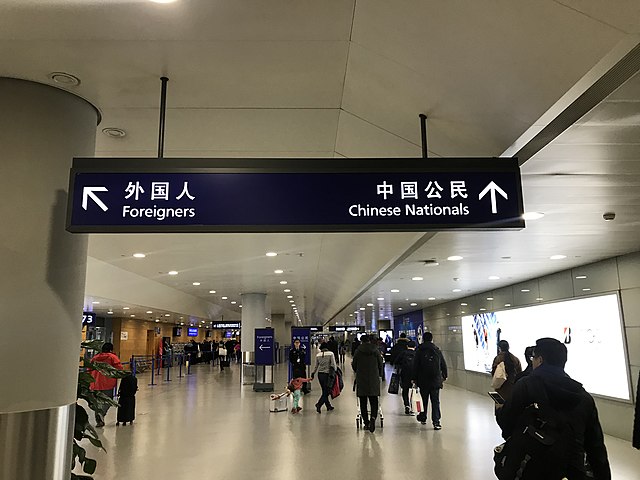Peruvian nationality law is regulated by the 1993 Constitution of Peru, the Nationality Law 26574 of 1996, and the Supreme Decree 010-2002-IN, which regulates the implementation of Law 26574. These laws determine who is, or is eligible to be, a citizen of Peru. The legal means to acquire nationality, formal membership in a nation, differ from the relationship of rights and obligations between a national and the nation, known as citizenship. Peruvian nationality is typically obtained either on the principle of jus soli, i.e. by birth in Peru; or under the rules of jus sanguinis, i.e. by birth abroad to at least one parent with Peruvian nationality. It can also be granted to a permanent resident, who has lived in Peru for a given period of time, through naturalization.
Peruvian passport.
Nationality is the legal status of belonging to a particular nation, defined as a group of people organized in one country, under one legal jurisdiction, or as a group of people who are united on the basis of culture.
An immigration inspection sign at Shanghai Pudong International Airport with the English term "Chinese nationals" and the Chinese term for "Chinese citizens (中国公民)".
A Soviet birth certificate, in which the nacional'nost' of both parents (here both Jewish) was recorded. These records were subsequently used to determine the ethnicity of the child, as specified in his internal passport.



